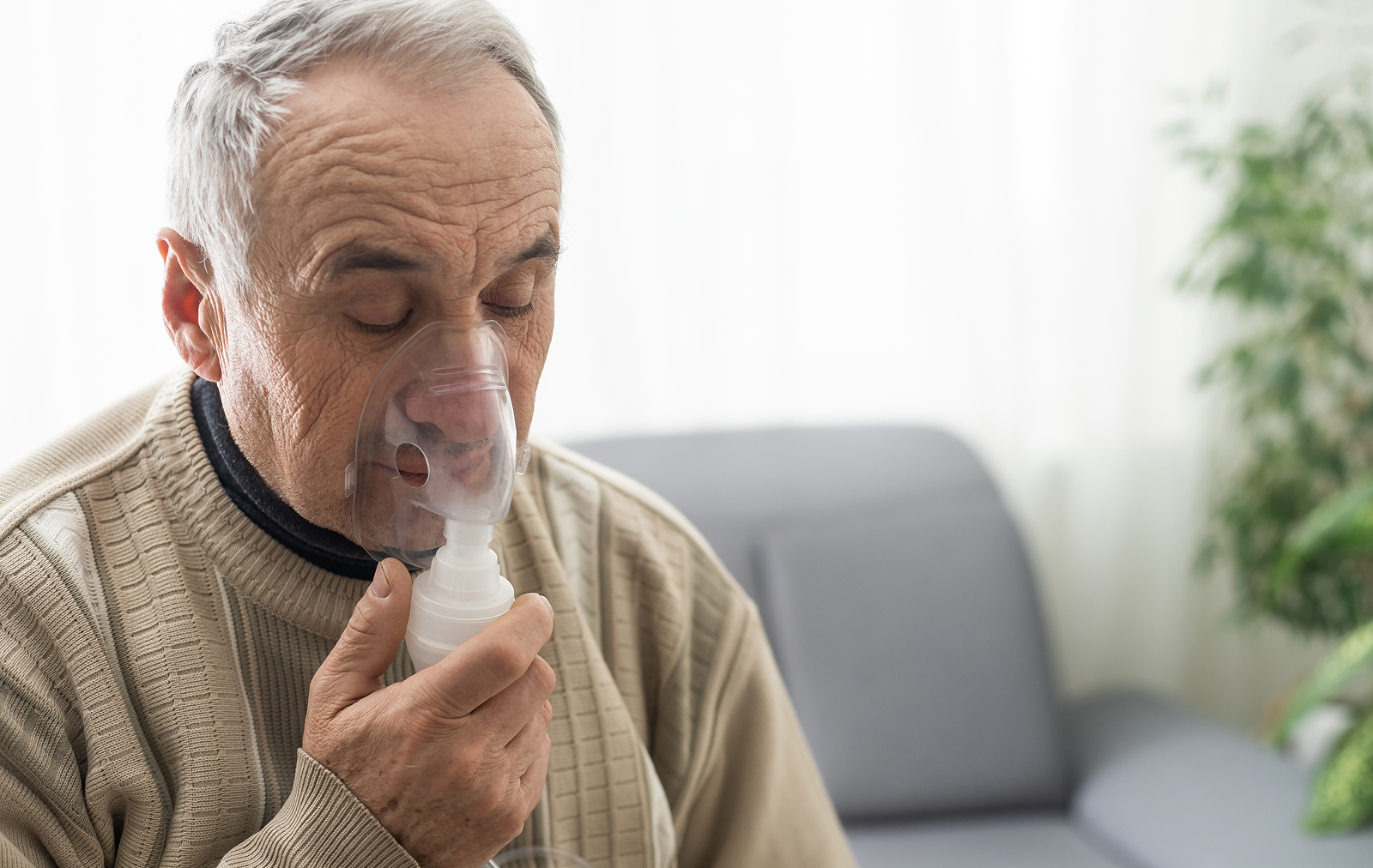
COPD is where air cannot get out of the lungs easily (the airflow is obstructed). It is a common condition that mainly affects middle-aged or older adults who smoke. In the UK, there are 1.3 million people with a diagnosis of COPD. Many people do not realise they have it.
Let’s start by understanding the name:
COPD is the name for a group of lung conditions, including long-term bronchitis and emphysema:
The breathing problems can gradually get worse and can limit your normal activities. There is no current cure. There are treatments to help you breathe more easily and help keep you active.
The main symptoms of COPD are:
Without treatment, the symptoms usually get progressively worse. There may also be periods when they get suddenly worse, known as a flare-up or exacerbation.
If COPD makes breathing very hard, you might lose your appetite and notice weight loss. You may also find that your ankles swell because of a build-up of fluid (oedema). These could be signs of advanced COPD, but you should have them checked by a clinician.
COPD usually develops due to long-term lung damage from breathing in harmful substances. Smoking is the main cause of COPD and is thought to be responsible for around 9 in every 10 cases.
The risk of developing COPD goes up the more you smoke and the longer you’ve been smoking.
Some cases of COPD are caused by long-term exposure to harmful fumes or dust. Others are the result of a rare genetic problem that makes the lungs more vulnerable to damage from harmful fumes and dust. COPD does seem to run in families, so if your parents had chest problems, then your own risk is higher.
The outlook for COPD is different from person to person. Like many long-term conditions, such as diabetes and heart disease, COPD cannot be cured. But, treatment can help manage it and prevent it from heavily impacting daily life.
For some people, especially those who keep smoking, COPD may get worse even with treatment. This can significantly impact their quality of life and cause serious, life-threatening issues.
With COPD, your airways have narrowed permanently, though you can make a big difference by getting as fit as possible. Inhaled medication can help open them up, but only to some extent.
With asthma, the narrowing of your airways comes and goes over time. It often happens when you’re exposed to something that irritates your airways like dust, pollen, or tobacco smoke. Inhaled medication can relieve symptoms by relaxing your airways.
It is sometimes difficult to distinguish between COPD and asthma. They have similar symptoms and some people who have asthma can develop COPD in later life. Additionally, some people have both COPD and asthma.
Disclaimer
This article is for educational purposes only and should not be used as a substitute for medical advice. Always speak to your doctor, nurse or pharmacist about your individual care. The information reflects NHS and NICE guidance at the time of publication.